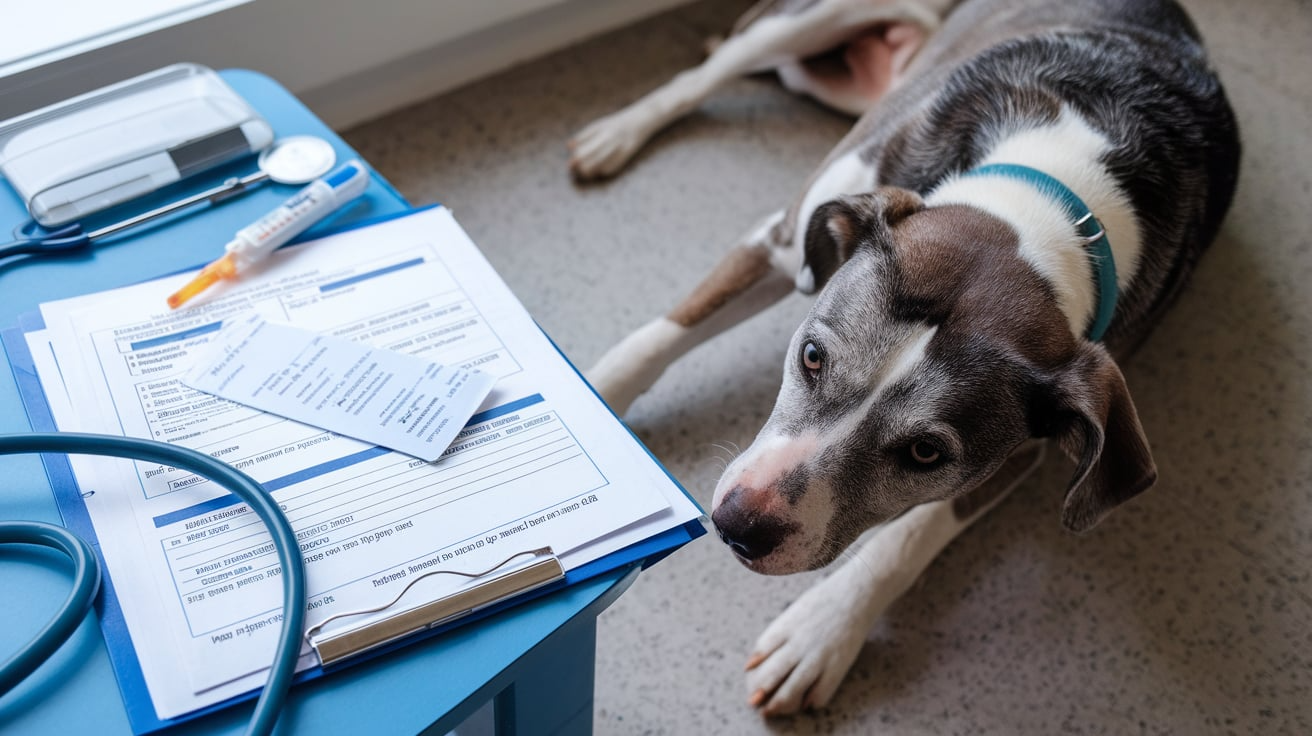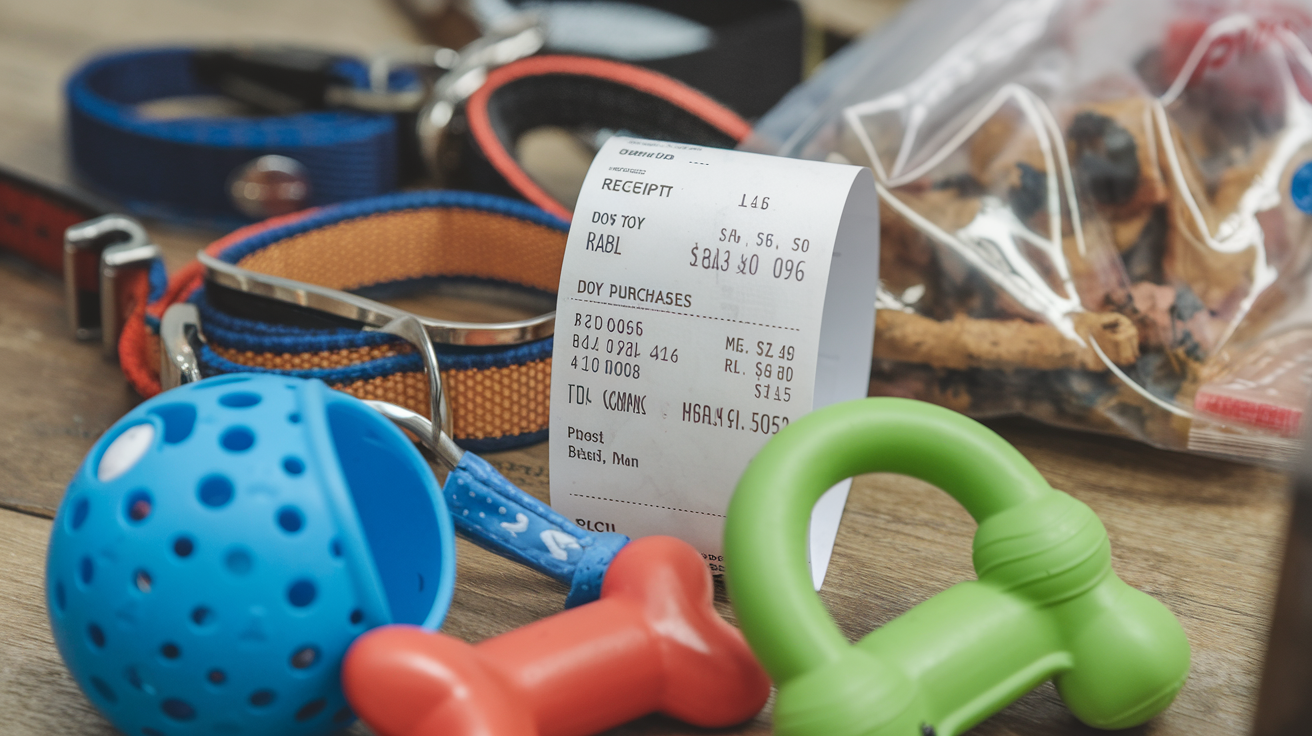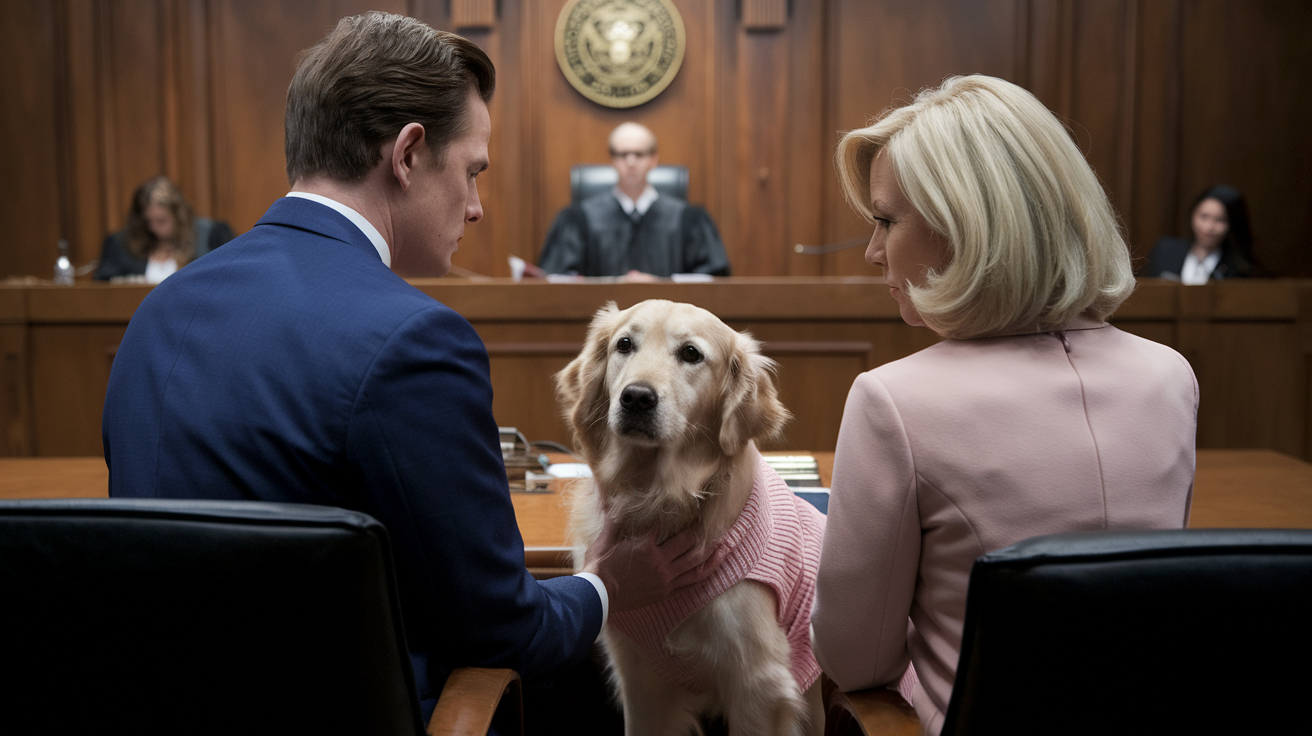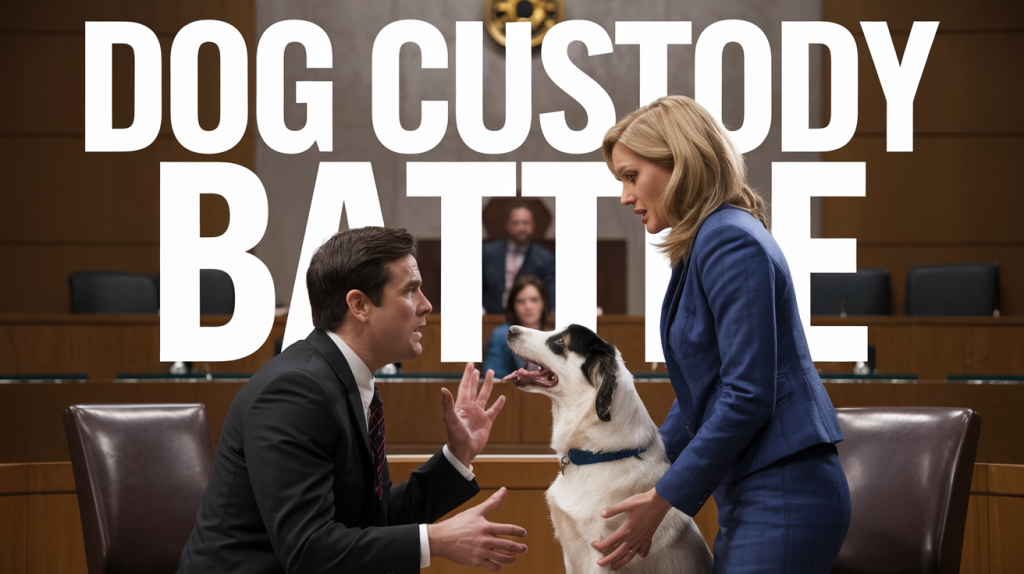“So, who gets the dog?” Those four words can turn any peaceful separation into a tough battle.
Your heart sinks at the thought of losing your loyal companion – the one who greets you every morning and snuggles with you during movie nights.
Many pet parents feel lost when facing this situation. The legal system often sees dogs as property, but you know they’re family.
This guide walks you through the steps to build a strong case for your dog custody. There is no confusing legal talk – just clear, tested methods that work in real situations.
Let’s keep you and your furry friend together.
Overview of a Pet Custody
When couples separate, the question of who keeps the pets can become complicated. Pets are more than just property – they are family members who need care and attention. Courts now look at several factors when deciding about pet ownership after a breakup.
The main points that affect pet custody decisions include:
- Who bought or adopted the pet
- Who handles daily care like feeding and walking
- Who pays for vet visits and pet supplies
- Where the pet spends most of its time
- Which home setup works better for the pet
Many couples choose to make their own agreements about sharing time with pets. These arrangements can include:
- Set schedules for each person to have the pet
- Shared costs for food and medical care
- Plans for holidays and vacations
- Rules about moving or traveling with the pet
Making clear plans early helps avoid conflicts later. The focus should stay on what serves the pet’s needs best. Both parties need to be flexible and willing to work together for their pet’s well-being.
Steps to Get a Dog Custody
Getting custody of your dog requires careful planning and proper documentation. Here are the key steps to help you through this process:
1. Keep Medical Records

Make sure you have all vet records and bills in your name. This shows you’ve been responsible for the dog’s health care. Get copies of vaccination records, check-ups, and any special treatments.
Show proof of purchase or adoption; keep the original papers that show who bought or adopted the dog. These could be:
- The purchase receipt from a pet store
- Adoption papers from a shelter
- The bill of sale if you bought them from a breeder
2. Record Keeping of Dog Care

Write down how you care for the dog daily. Keeping detailed notes about your dog’s daily care routine helps prove your dedication and involvement as a responsible pet owner.
Track these details with dates and times. These include:
- Who feeds the dog
- Who takes the dog on walks
- Who handles their grooming needs
- Who spends the most time with the dog
3. Get Your Home Ready

A dog-friendly home creates a safe and comfortable space for your pet, showing you’ve made real efforts to provide the best possible living conditions.
Make sure your living space suits your dog’s every need:
- Set up a specific area for the dog’s bed and toys
- Have proper fencing if needed for your dog
- Create a safe outdoor space for the dog to play in
4. Talk to a Lawyer

Getting expert legal help early can make a big difference in pet custody cases. A skilled lawyer with experience in these matters will know the right steps to take.
Find a lawyer who will tell you information about these pet custody cases like:
- What are your rights in these types of cases
- Help you file all the important documents
- Guide you through all the legal steps
5. Save Financial Records

Good documentation of all the money you spend on your dog shows your long-term commitment to providing quality care.
Keep all papers that show you paid for the dog’s needs:
- Food receipts of all the snacks or dog food you bought
- Toy purchased for your little dog
- Grooming costs
- Training class fees
Why Pet Custody Disputes Happen
When couples split up, they often face tough choices about who gets to keep their pets. Here are the main reasons these disputes come up:
- Strong bonds with pets: Both partners usually spend time caring for their pets and build deep emotional connections. This makes it hard to decide who should keep them after breaking up.
- Shared pet care duties: Many couples split the work of feeding, walking, and taking pets to the vet. This shared history can make both people feel they deserve to keep their animal friends.
- Money matters: Pets need food, medical care, and supplies. Sometimes, one person pays more for these costs and feels this gives them a better claim to keep the pet.
- No clear ownership proof: Many couples don’t think about keeping purchase papers or vet records in one person’s name. Without these documents, it’s harder to show who should have the pet.
- Different living situations: After splitting up, one person might move to a place that doesn’t allow pets. Or someone’s new home might have a yard while the other lives in a small apartment.
- Children’s needs: When kids are part of the family, they often have strong feelings about the pets, too. Parents sometimes fight over pet custody because they want to keep their children happy.
Why Dog Custody Matters in Separations
| Factor | Importance |
|---|---|
| Emotional Bond | Dogs form deep attachments to their owners. Sudden changes in their environment or primary caregiver can cause stress, anxiety, or depression. |
| Stability and Routine | Dogs thrive on routine. Frequent changes in living arrangements or inconsistent care can lead to behavioral problems, including aggression or withdrawal. |
| Legal Considerations | In many places, pets are considered property, but some courts recognize their emotional value and may determine custody based on who provides the best care. |
| Health and Well-being | Regular vet visits, diet, exercise, and emotional care must remain consistent, regardless of the separation. Custody decisions should prioritize the dog’s overall health. |
| Reducing Stress | A well-thought-out custody arrangement prevents conflict, ensures shared responsibility, and keeps the dog in a loving, familiar environment. |
| Impact on Children | If kids are involved, maintaining a stable relationship between the child and the dog can provide comfort during a difficult transition. |
Factors that Courts Consider in Pet Custody Cases

- Pet Care History: The court looks at who handled the pet’s daily needs. Who fed the pet and took it for walks? Who scheduled vet appointments? Who bought food and supplies? Records from veterinarians and pet stores can show who took care of the pet.
- Time and Attention: Courts check who spent more time with the pet. Did one person work from home with the pet? Who played with the pet most often? Who trained the pet? Time logs and photos can prove regular interaction.
- Financial Support: The judge examines who paid for pet expenses. This includes vet bills and medications, food and treats, grooming services, pet insurance costs, training classes, toys, and supplies.
- Living Arrangements: The court reviews each person’s home setup. Does the home allow pets? Is there enough space? Is there a yard? What about nearby parks? The living space must suit the pet’s needs.
- Work Schedule: Courts look at each person’s daily routine. Who has time to care for the pet? Can they take the pet out regularly? Will the pet stay alone too long? Work hours affect pet care quality.
- Pet’s Bond: The judge considers the pet’s connection with each person. Which person does the pet follow? Who does the pet seek for comfort? Where does the pet sleep? These show emotional bonds.
- Future Care Plans: The court wants to know about future pet care plans. Who will handle vet costs? What happens during vacations? How will schedule changes affect the pet? Good planning shows responsibility.
- Pet’s Special Needs: Judges look at any special care the pet needs. Does the pet need medicine? Special food? Extra exercise? Regular treatments? The right person must handle these needs.
Tips for Maintaining Your Dog’s Well-Being
| Category | Details |
|---|---|
| Keep a Regular Schedule | Feed your dog at the same times each day. Maintain normal walk times across both homes. Set fixed times for play and rest. Use the same commands in both places. This helps your dog feel secure. |
| Match Rules at Both Homes | Use the same commands and limits. Set clear bedtimes and food rules. Make play and walk times close to each other. This helps your dog stay happy. |
| Share Health Information | Keep a notebook of vet visits, shots, and medicines. Note changes in eating or behavior. Make sure both homes know about food needs and health matters. |
| Watch for Changes | Pay attention to your dog’s food and water intake during custody switches. Note if they eat less or drink more than usual. Keep track of their eating speed and interest in meals. |
Conclusion
Getting custody of your dog takes planning and patience. Like any family member, your furry friend deserves a stable, loving home.
With the right paperwork and proof of care, you can make a strong case for keeping your pet. Taking care of your pet’s needs and creating strong bonds matters more than proving who spent the most money.
Remember to gather vet records, registration papers, and daily care logs. These small steps can make a big difference in court. Your pet’s well-being matters most during this process.
Ready to start building your case? Start collecting those documents today. Make copies of all bills and records. Take photos of your daily walks and playtime. In this way, you can secure custody of a dog.
Let’s make sure your furry friend stays with the person who cares most – you.
Frequently Asked Questions
Will Gathering Documents Help My Case?
Courts need proof to decide on pet custody. Keep records of vet visits, food costs, daily care, training classes, grooming appointments, and pet insurance to show your role as a caregiver.
Who Wins the Custody of a Dog More Often?
Courts give dog custody to proven primary caregivers. The owner who pays vet bills handles daily care, makes medical choices, and spends time with the pet wins.
What is the Biggest Mistake in Custody Battle?
Losing pet custody often happens when owners don’t keep proper records. Save vet bills, food receipts, registration papers, and care records to prove who looks after the dog.








